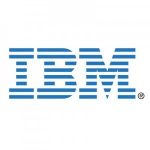Digital Reinvention
We are definitely going to see a lot of interplay between AI and blockchain
August 14, 2018 | Written by: IBM India
Categorized: Digital Reinvention
Share this post:
IBM team Interview: Sriram Raghavan Vice President, Director IBM Research-India, CTO IBM India South Asia
Where do you think India stands in relation to understanding the power of cognitive, and what interesting collaborations with Watson has this led to?
We are beginning to understand the power of cognitive in AI. Corporations and enterprises across the board in India are beginning to understand the possibilities of cognitive in AI, but I think we are still early in the journey in terms of truly embracing AI as the transformative technology that we believe it is.
One of the areas where we can see the adoption of AI is customer support. This is clearly the case because of India’s scale; many enterprises very naturally deal with tens of thousands of customers. Here, AI is adopted as a way to provide better customer experience and drive efficiencies in the customer support processes. This is one area where the banks & telecom organisations are exploring AI actively.
Another area where there is increased adoption of AI is in Retail. Given that India is an emerging, triple-digit million-dollar market with a lot of retail still in the unorganised sector but moving more and more into the organised sector, AI is being adopted as a differentiator. In different forms of retail, AI can transform the buying behaviour with targeted personalised recommendations.
One other area germane to India is the traditional agriculture/agribusiness. We have been working with the clients around how to use AI together with the vast amount of publicly available remote sensing data from the satellite. This is a very powerful way to bring deep insights about what’s happening on the ground all the way down to the plant health, soil quality, and moisture and irrigation. AI gives you a very powerful way to get those insights without having to install on-the-ground sensors, which is a hard thing to do in a very fragmented land holding pattern that we have in India.
These are just some examples and we are barely scratching the surface. These collaborations, from retailers to agriculture business organisations as well as banking and telecom, are a sign that this is only going to increase in the years to come.
Apart from the financial sector, what industries do you think will see a reliance on Blockchain?
The Blockchain technology has seen adoption, even internationally, in organisations that offer exchange services, DECC or CLS for example. They are not a bank but are a big part of the fabric of the financial services ecosystem. The financial sector is definitely the starting point for Blockchain.
The second important area, true globally and in India, is around supply chain & logistics. Beyond the financial sector, this is the sector with the maximum immediate near-term potential for Blockchain. There is lack of coordination, lack of visibility, lack of a trusted data and transaction sharing platform across multiple people and this has been a huge pain-point for the entire supply chain & logistics pipeline. Blockchain offers the promise to really transform those processes. For this reason, supply chain & logistics as a sector would take to blockchain more rapidly than others. Down the line, we can expect Blockchain to go beyond the financial sector and supply chain & logistics to touch many more industries.
How is the integration of AI helping you create new business models?
Fundamentally, AI is eventually going to transform all business processes. This kind of transformation is going to require a combination of technology coupled with the availability of deep enterprise data which our customers have, along with a deep understanding of the domain as well. When we talk about the integration of AI into enterprises – it is really a coming together of data, technology & domain knowledge that goes behind these use cases. This is where interesting partnerships are going to continue to emerge.
IBM has partnered with some of the best healthcare players in the market. In some cases, we have acquired organisations and in many others, we partnered with healthcare device makers as a way to take to AI technology. This is an example where the domain expertise and data is being coupled with the technology promise of IBM to create a new interesting tag of businesses.
The exact nature of the business model may vary, sometimes it’s a brand-new entity, sometimes it’s a partnership, sometimes one of the entities have the route to the client and then the IBM technology allows the client to differentiate.
Technology is changing on a rapid basis, what is your team’s POV to stay ahead of the curve?
Within our portfolio, we have a set of leading projects which is a disconnect from today’s business strategy. These are the projects that are for experimenting with technology, creating interesting use cases, trying to solving hard problems and setting ourselves up for grand challenges where we don’t know if a breakthrough will occur. One of the key elements is to always be out there experimenting, staying ahead of potential technology disruption by continuously watching for new applications, new emerging areas, the new inflection point where the cost of a device or availability of compute power, something like that changes.
The other important thing in staying ahead is being constantly flexible and in the market. This is recognizing that sometimes the right technology for the industry can change and so being flexible will help adapt the technology to different use cases.
The third is very simple, hire the best people. This is really hiring the best talent available that is diverse and inclusive. This helps us have, within our team, a continuous stream of innovative and interesting ideas. These are the three things we do.
Do you see interplay between AI and Blockchain?
We have talked in parts about two majorly disruptive technologies – AI & Blockchain. We are definitely going to see a lot of interplay between these technologies because at the core, Blockchain lets you bring a potentially disconnected business ecosystem together on a single platform enabling trusted data & transaction sharing. Once you are able to do that, you have unmasked a collection of data that is now amenable to AI which never existed before. Automatically there is this whole Blockchain bringing data together to which one can apply AI.
The next phase is to apply AI in a secure privacy-preserving confidential way. The reason why business has got together on Blockchain is because of its trust & security. Can I still do AI & insights while respecting that trust & privacy? That is going to be on a theme of use cases and we are already starting to see that. These both interplay- AI on Blockchain and Blockchain as an enabler for trusted
Logistics Operations Management ERP on AWS Cloud
Logistics operations is an essential part of the supply chain and refers to the process of moving finished goods, starting from the manufacturer, and moving to the end user.
How ICICI Prudential Life Insurance is Scaling Customer Care and Leveraging AI to Personalize Experiences
Organisations are constantly challenged to meet dynamic customer requirements and rethink ways to engage with them on their terms and as per their convenience. With customers at the core of decision making and business success, organisations are tuning to digital capabilities that can support new-age services. When done well, after sales service boosts the overall customer experience by providing […]
Genpact undergoes cyber defense transformation with IBM Security
Genpact, a global professional services firm, is accelerating digital-led innovation and digitally-enabled intelligent operations for its clients – many of them Global Fortune 500 companies – to deliver real-world transformation at scale. With oversees global operations in 30 countries serving over 800 clients, Genpact’s 90,000+ employees are reinventing business models and running thousands of processes, […]



